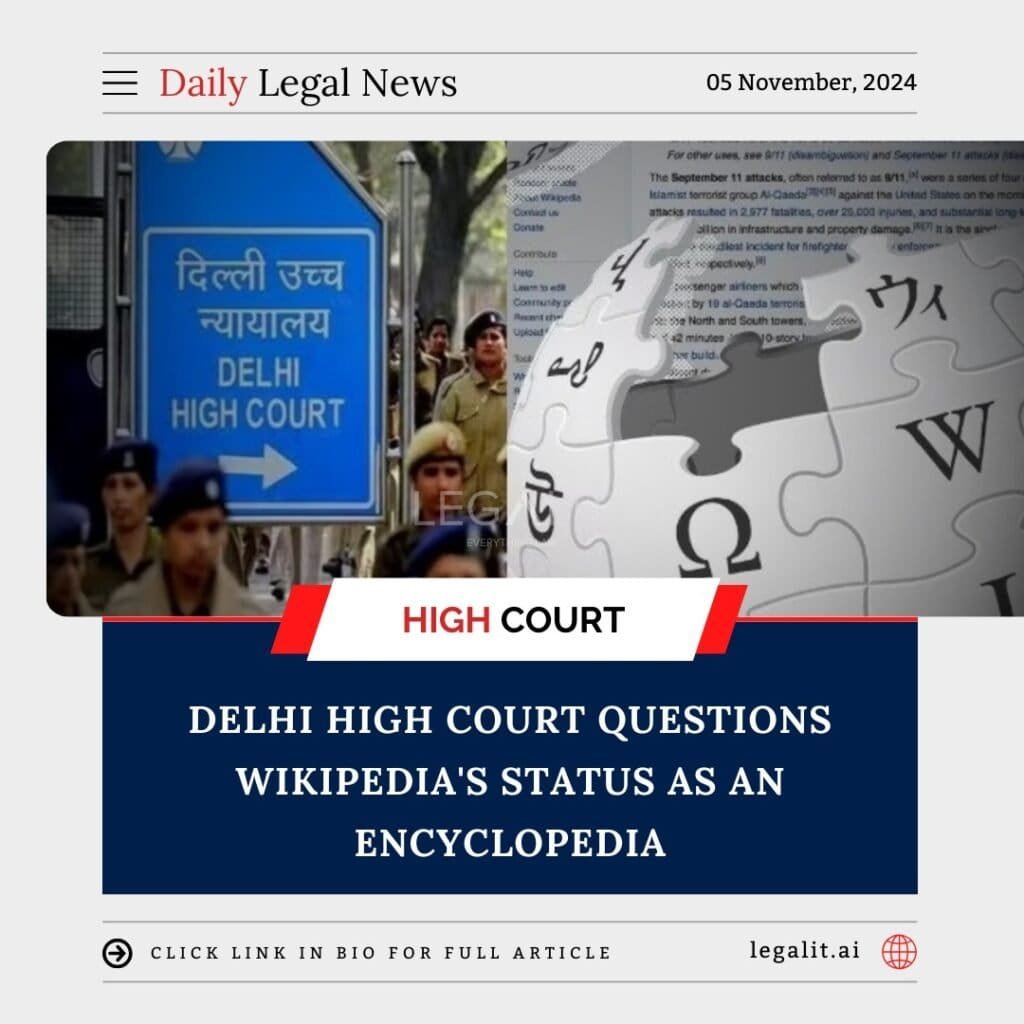
In a recent hearing, the Delhi High Court raised questions about Wikipedia’s credibility as an encyclopedia, expressing concern over the platform’s user-edited model and the potential for misinformation. The Court sought clarity on how Wikipedia, which allows anonymous edits and contributions from users worldwide, could verify its content’s accuracy while maintaining a reputation as a reliable source of information.
Background:
The case arose in the context of a defamation lawsuit, where Wikipedia entries had been cited as a source. The High Court expressed apprehension regarding the platform’s openness to edits from unverified users, which could lead to inaccuracies and biased representations. This concern brings to the forefront the balance between open knowledge-sharing and accountability in content accuracy.
Court’s Observations:
The Delhi High Court pointed out that Wikipedia’s claim to be an encyclopedia might be questionable, given that traditional encyclopedias adhere to stringent editorial and fact-checking standards. Justice Prathiba M. Singh observed that while Wikipedia is a valuable resource, its content is not always verified by subject-matter experts. This calls into question the reliability of its information in legal contexts, particularly when accuracy is paramount.
Implications:
The Court’s concerns highlight the growing scrutiny of open-source information platforms in legal proceedings, where factual precision is essential. This case could lead to a reevaluation of how user-generated knowledge bases like Wikipedia are perceived within Indian jurisprudence and might prompt additional checks for accuracy when Wikipedia content is used in formal legal contexts.
Conclusion:
The Delhi High Court’s inquiry reflects a cautious approach to the use of open-edit platforms as credible sources in judicial matters. This questioning may initiate further discussions on the standards required for platforms like Wikipedia to be referenced as reliable sources in the legal domain, underscoring the need for responsible use of crowdsourced information in critical contexts.